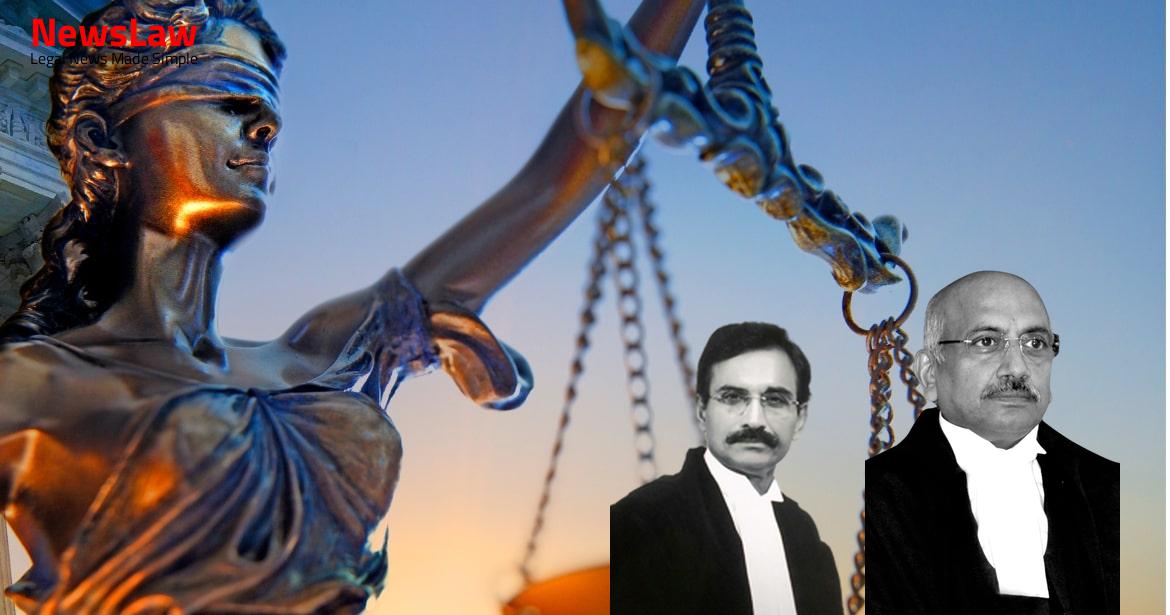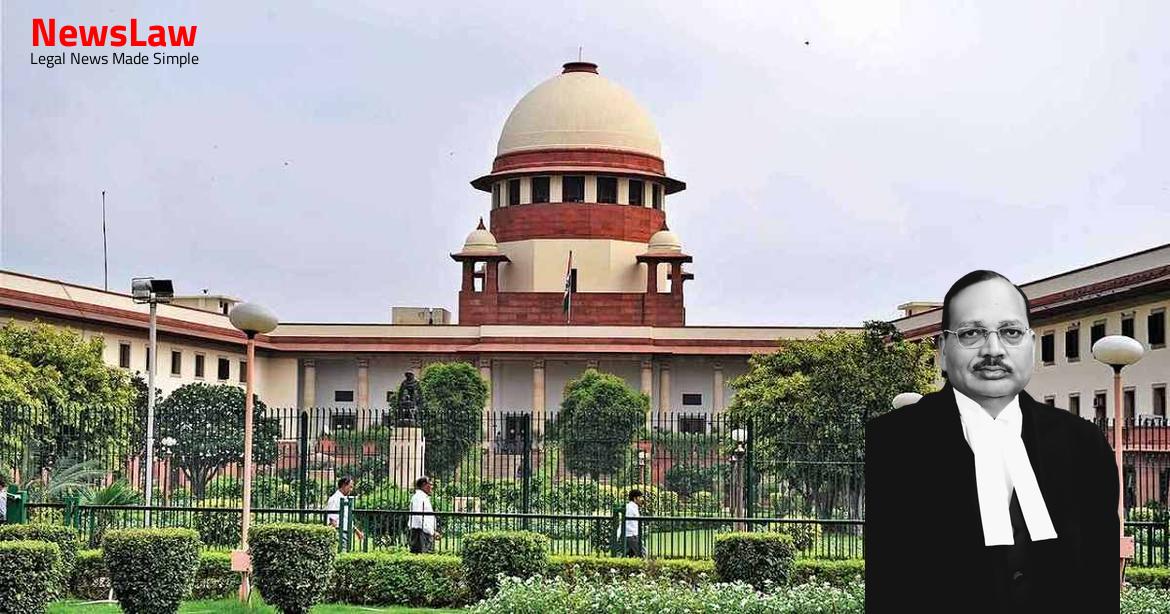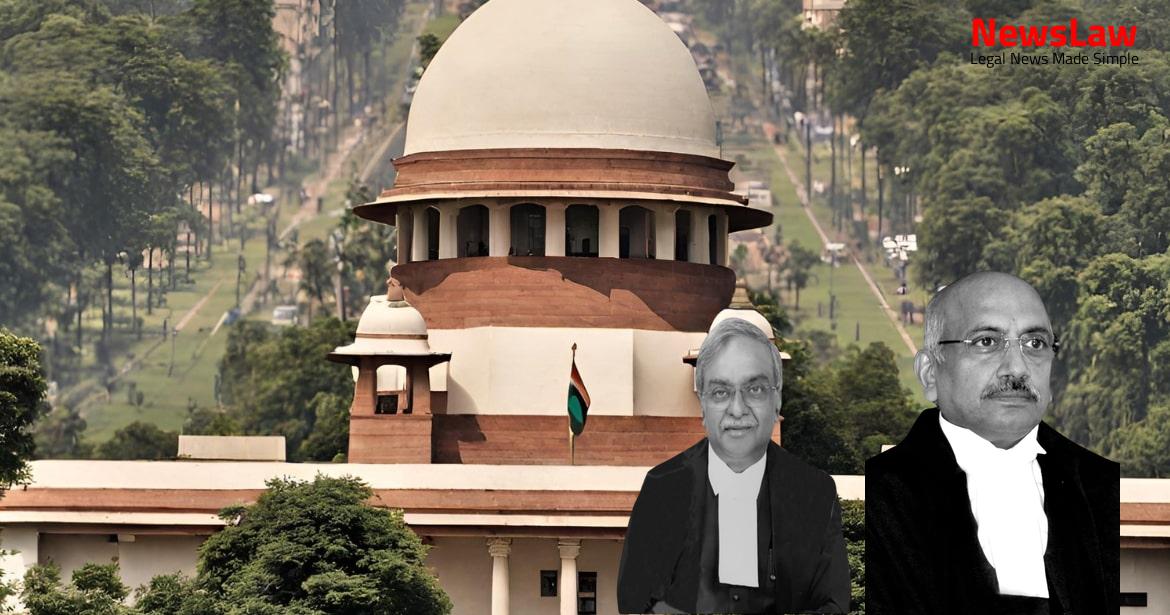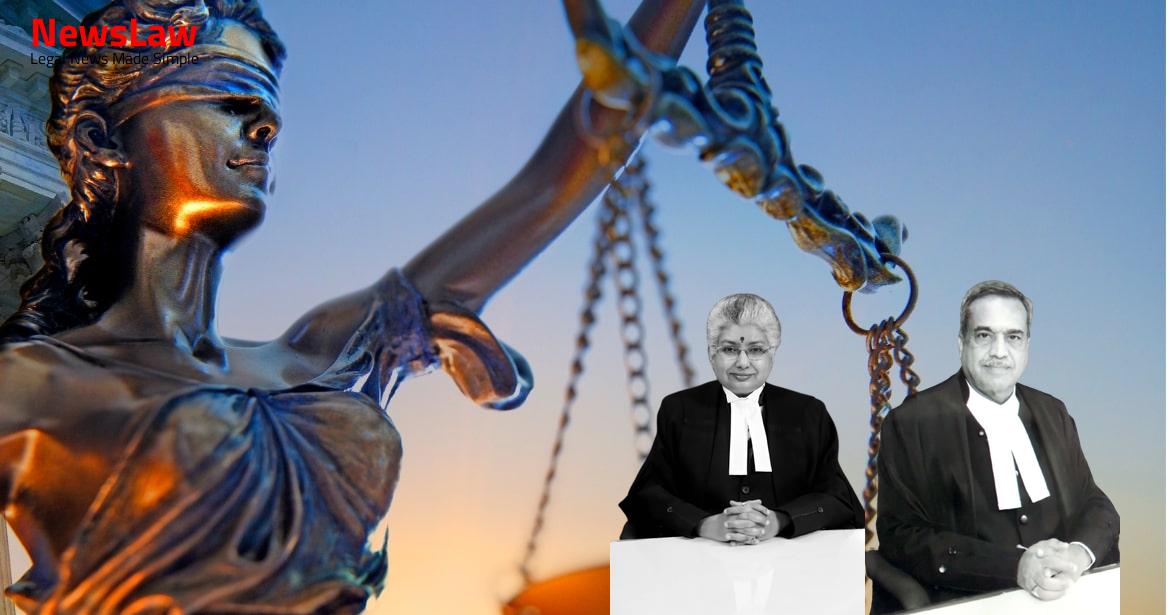Delve into the intricate legal intricacies of a recent Supreme Court judgement related to a land dispute resolution. The case involves multiple suits and appeals, with a focus on issues of res judicata and finality of decrees. The court analysis centers on the parties involved in the case, highlighting the importance of legal principles in resolving complex disputes.
Facts
- Three separate suits were filed against the defendants including the State regarding different parcels of land
- All suits were tried together and appeals were filed by various parties
- Objection raised regarding findings of certain issues operating as res judicata
- Trial court decreed the suits but appeals were preferred
- Preliminary objection raised in appeal before the Court regarding no appeal against a specific order
- High Court dismissed the second appeal and suits related to tenant and recovery of amounts were also dismissed
- State filed an appeal against the judgment and decree in the third suit
- Defendant No.5, the brother of the Plaintiff, filed a second appeal against the judgment and decree passed by the First Appellate Court.
- The second appeal was initially dismissed as not maintainable.
- The Court held that a person has the right to maintain an appeal if adversely affected by a decree.
- The Court distinguished the earlier judgement in Narhari.
- Defendant No.5 benefited from the decree granted by the trial court, but due to settlement between Plaintiff and other defendants, his rights were unsettled, leading to legal injury.
- The matter was remitted to the High Court for fresh consideration.
- The judgment in Sri Gangai Vinayagar Temple was relied upon by both parties during the proceedings.
- The High Court’s decision regarding the maintainability of the first appeal by Defendant Nos. 2 and 3 was discussed.
- The Court emphasized that right to appeal is a statutory right.
- A case reference to Ramesh Chandra was made discussing findings on a suit for joint possession based on suspicious circumstances surrounding a Will.
Also Read: Supreme Court Ruling on Dowry Harassment and Suicide Case
Issue
- The Court examined the issue of whether a decree for specific performance could be granted after being declined by the trial court without filing an appeal or cross-objections.
- The specific issue was whether the party seeking specific performance could still obtain the decree despite the trial court’s initial refusal.
- The Court considered the procedural aspect of the decree for specific performance and the role of filing appeals or cross-objections in such cases.
Also Read: Case of Technical Equipment Officer Appointment Criteria Dispute
Arguments
- The Election Tribunal found that the appellant was not holder of office of profit but held that he is guilty of corrupt practices.
- The election of the appellant was set aside but did not grant the declaration that the respondent was duly elected candidate.
- Res judicata applies not only to the decree but also bars the Court from trying any suit or issue where the matter has been directly and substantially in issue in a former suit.
- Principle of res judicata applies to findings recorded in a suit, not just the final judgment and decree.
- Judgments cited by the respondents are in cases where the decree had attained finality, unlike the present case where the suit was dismissed and is being challenged in appeal by the plaintiff.
- The appellants argue that findings in the first and second suits have not attained finality as the State did not file any appeal against them, and therefore, they should not operate as res judicata.
- Counsel for both sides present conflicting interpretations of the applicability of res judicata in this case, citing different judgments to support their positions.
Also Read: Supreme Court Judgement on Transfer of Mining Environmental Clearances
Analysis
- The Court analyzed multiple cases where the issue of finality of decrees and appeals was central.
- It was observed that in the present case, the decrees in the first and second suits had not attained finality due to pending appeals.
- The appellant’s right to support the decree in terms of Order XLI Rules 22 and 33 of the Code was highlighted.
- The presence of multiple suits and appeals necessitated a careful examination of finality of judgments.
- The distinction between decree and findings on an issue was emphasized, with a focus on the right to challenge findings even without filing cross-objections.
- The application of principles of res judicata in relation to the parties and their rights was a key aspect of the analysis.
- The Court also discussed the jurisdiction of the Appellate Court to pass appropriate orders under Order XLI Rule 33 of the Code.
- Various judgments were referenced to provide clarity on the legal principles governing the case.
- The arguments regarding findings in former suits and their impact on subsequent proceedings were carefully considered and analyzed.
- The importance of finality of decrees, pending appeals, and the right of parties to challenge findings formed the crux of the analysis.
- The Court in the present case held that the judgments cited by the State were not applicable to the facts of the case.
- The State argued that appeal lies against the decree passed and not the judgment giving the reasons to pass a decree.
- The State contended that they have the right to challenge findings on Issue No. 1 in terms of the provisions of Order XLI Rule 33 of the Code.
- The case of Chitivalasa Jute Mills involved suits filed in different locations, Reva and Vishakhapatnam.
- It was argued that res judicata in terms of Section 11 of the Code applies to a finding in the former suit and not just the decree.
- In the case of S. Nazeer Ahmed, it was held that an appellant can challenge the finding of the trial court without filing a memorandum of cross-objections.
- Refers to a judgment in Sheodan Singh case stating finality of a decree cannot be disturbed indirectly by adjudicating the same questions in another appeal
- Finds the findings of the High Court as erroneous
- Non-filing of appeal by the State in two suits operates as res judicata in the third suit
- The trial court had clubbed all three suits together and recorded common evidence
- Discussion on the distinction between an order of consolidation of suits and a common judgment in different suits by learned counsel for the parties
- The findings on Issue Nos. 1 and 2 in the first and second suit do not operate as res judicata.
- The issue of title has not attained finality, therefore it is not a former suit to which there can be any application of Section 11.
- In terms of Section 11 read with Explanation I, the issue in a former suit will operate as res judicata only if such issue is raised in a subsequent suit.
Decision
- Contempt Petition (Civil) No. 204 of 2014 is disposed of as per the orders in the appeals.
- All pending applications related to the case are also disposed of.
- The court has acted in accordance with the orders in the appeals.
Case Title: THE STATE OF ANDHRA PRADESH Vs. B. RANGA REDDY (D) BY L.R.
Case Number: C.A. No.-017486-017486 / 2017



